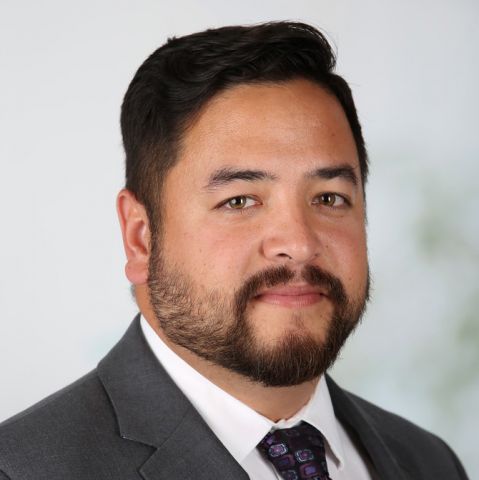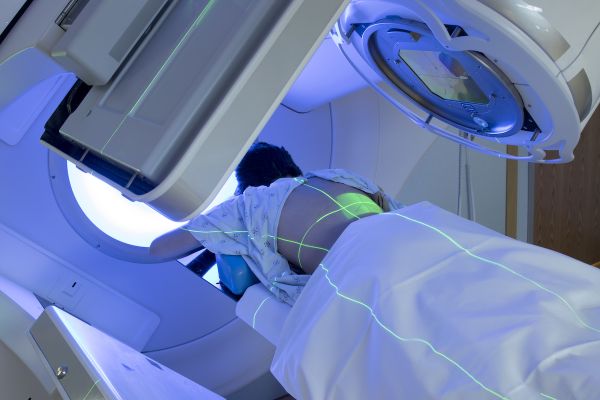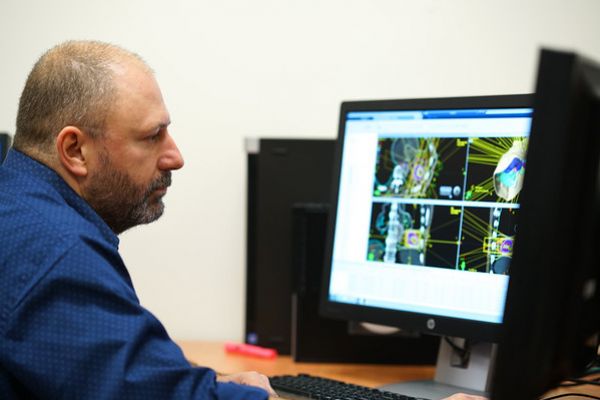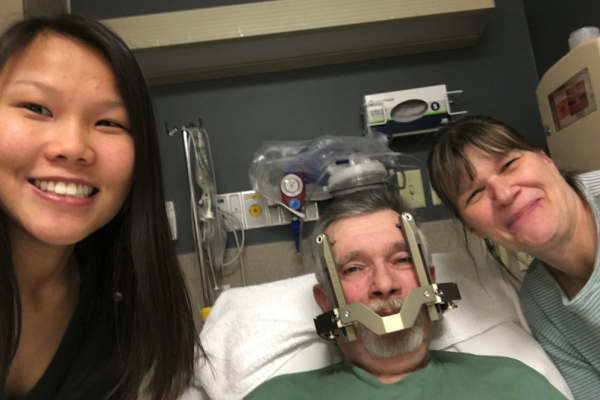When discussing radiation therapy with a patient, I’m often asked, “What side effects should I expect?”
There are three things to keep in mind about radiation therapy side effects:
- Radiation is like sunlight. It’s made up of photons, just like sunlight, except radiation photons have higher energy so they can penetrate beyond the skin to reach cancer inside your body.
- Radiation is a form of local treatment that only affects what’s within the area being treated.
- No two people will have the same degree of side effects, and there’s no way to know how you’ll do until you start.
There are two main categories of side effects, the EARLY and the LATE.
Early Side Effects
Early side effects are common, and they occur during the course of radiation treatment.
Because radiation affects only the treated area, early side effects are predictable based on the area being treated. For breast cancer patients, early side effects include skin changes and fatigue. Treatment to the belly area can result in nausea and diarrhea. Prostate cancer treatment may result in discomfort with bowel movements and urination. Head and neck radiation causes discomfort with swallowing.
Generally, during the first couple of weeks of treatment, everyone does fine. That’s because we give a small dose of radiation each day, which adds up over the course of treatment. You’re likely to notice changes a few weeks in, and you are sure to notice side effects by the end of treatment. You’ll meet with your doctor once a week during treatment, which will allow him or her to see how you’re doing, to recognize any side effects that may be developing, and to recommend interventions. These could include skin creams, dietary modifications, new medications or modifying existing medications.
In the case of breast cancer, I’ve noticed that if my patient is doing well at two weeks, she’ll tend to do well over the course of treatment and continue to do well long term. For patients who experience side effects earlier or more acutely, I’ll keep a closer eye on them.
Dealing with side effects from your cancer treatment?
The survivorship services at Roswell Park can help manage the side effects of your treatment.
Learn More About SurvivorshipLate Side Effects
Late side effects occur months to years after finishing radiation, and they’re much less common. They can include: lymphedema of the arm; weakening of bone; fibrosis of the lung; accelerated atherosclerosis of the heart; and, rarely, secondary malignancies. Radiation can also affect salivary function, thyroid function and gonadal function long term. And again, these side effects would only apply if they are within the treated area.
Reducing Side Effects
While planning your radiation treatment, your radiation oncologist can calculate how much dose is going to a particular organ. This gives us an idea of what the risk for side effects may be, and we can fine-tune the plan to get that risk down as low as possible.
To help reduce the radiation dose to the heart and the lungs we use a breath-hold technique at Roswell Park, where the patient holds their breath while the radiation is given. When the left breast is our target, the heart is sometimes partly in the field. When this happens, we are forced to make a compromise – either cover the entire target and include a portion of the heart in the field, or block the heart out of the field and, in doing so, block out part of the breast target. By taking in a deep breath the breast moves upward and away from the heart, and the heart is moved inferiorly and away from the breast as the diaphragm moves downward, increasing the distance between the breast and the heart. This allows us to cover the breast and avoid the heart entirely in nearly all cases.
My advice to anyone who is or will be receiving radiation treatment is to know what side effects to expect, practice prevention, and address any side effects early with your doctor.



